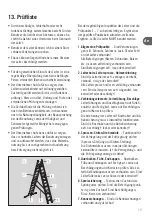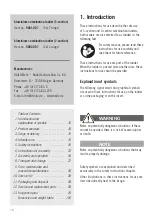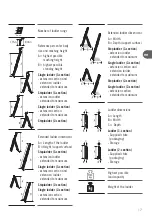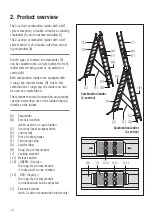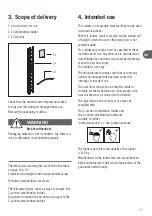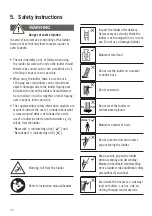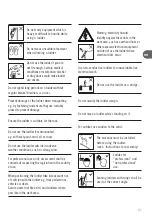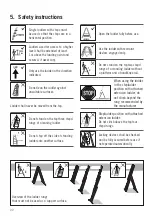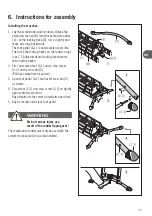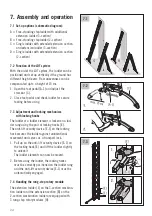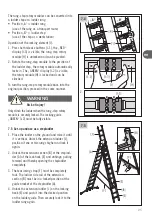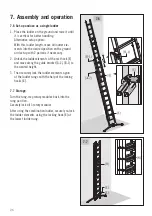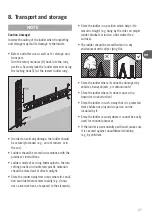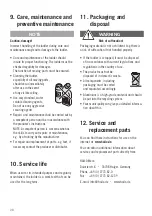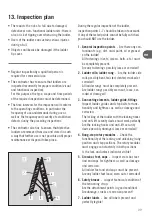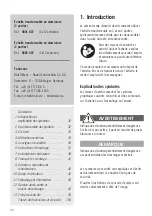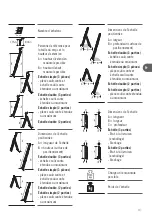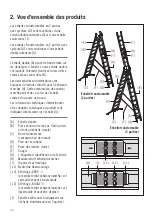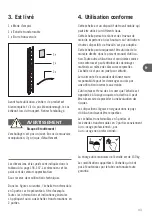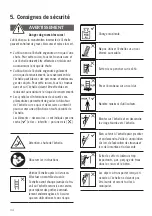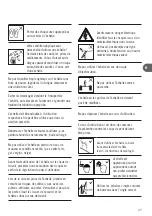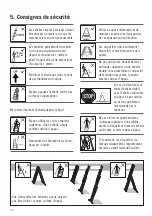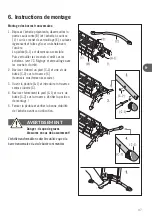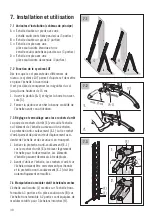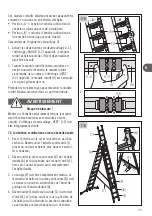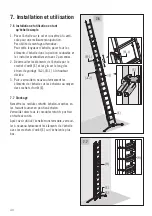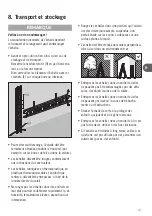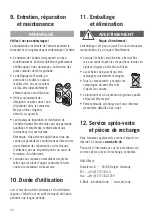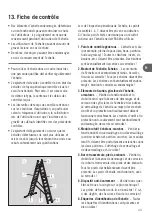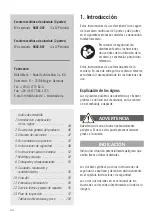
29
en
13. Inspection plan
1. General inspection points
- Are there any con-
taminants (e.g., dirt, mud, paint, oil or grease)
on the ladder?
All fastenings (rivets, screws, bolts, etc.) must
be completely present.
Are any fastenings possibly loose or corroded?
2. Ladder stile, ladder rung
- Are the ladder side
rails possibly bent, twisted, dented, cracked or
corroded?
All ladder rungs must be completely present.
Are ladder rungs possibly worn out, loose, cor-
roded or damaged?
3. Connecting elements, ladder guide, fittings
Inspect ladder guides and stop bolts for func-
tionality and tightness as well as damage and
corrosion.
The locking of the ladder with the locking hooks
and anti-lift security device must work perfectly.
Are the locking hooks and anti-lift security
device possibly damaged, loose or corroded?
4. Rung-step rotary modules
- Check the
functionality of the locking and unlocking (rung
position and step position). The rotary modules
must engage satisfactorily in both positions.
Is the lock and unlock indicator visible?
5. Crossbar, feet, caps
- Inspect crossbar, feet
and end caps for tightness as well as damage
and corrosion.
All ladder feet and end caps must be present.
Are any ladder feet loose, worn out or corroded?
6. Safety braces
- Inspect technical condition of
the tensioning strap.
Are the attachment points in good condition?
Are damage, cracks or corrosion present?
7. Ladder labels
- Are all labels present and
perfectly legible?
During the regular inspection of the ladder,
inspection points 1-7 should be taken into account.
If any of the tested points cannot be fully satisfied,
you should NOT use the ladder.
• There exists the risk of a fall due to damaged,
defective or non- functional ladder units; there is
also a risk of tipping over when using the ladder.
• Users of the ladder can sustain serious injuries
during a fall.
• Objects can likewise be damaged if the ladder
tips over.
• Regular inspection by a qualified person is
required for commercial use.
• The contractor has to ensure that ladders are
inspected recurrently for proper condition (visual
and functional inspection).
For this purpose, the type, scope and time periods
of the required inspections must be determined.
• The time intervals for the inspection will conform
to the operating conditions, in particular the
frequency of use and demands during use as
well as the frequency and severity of established
defects during the preceding inspections.
• The contractor also has to ensure that defective
ladders are removed from use and stored in such
a way that further use is not possible until proper
maintenance or disposal takes place.

